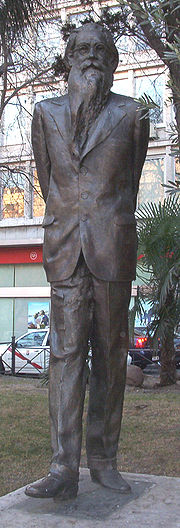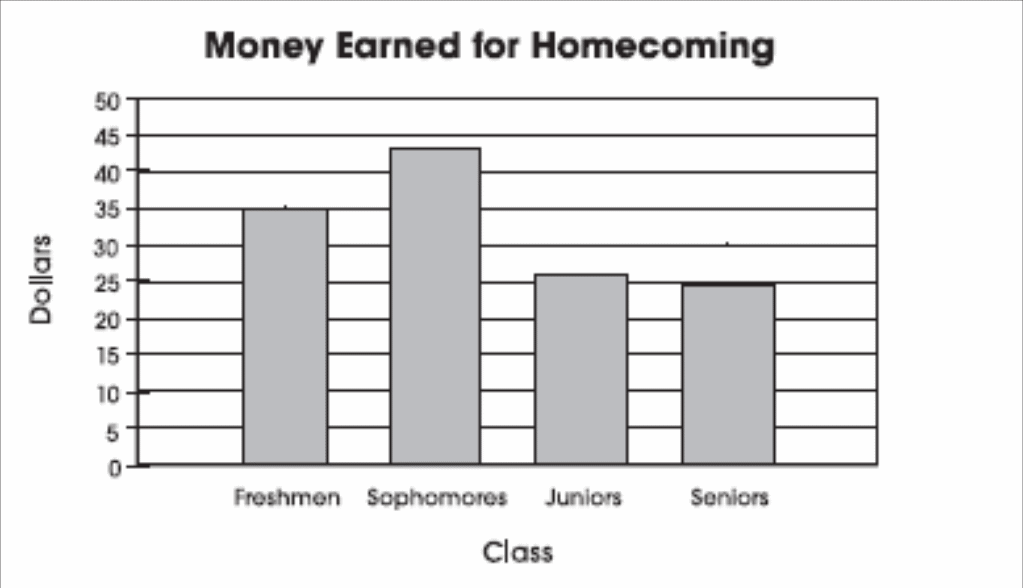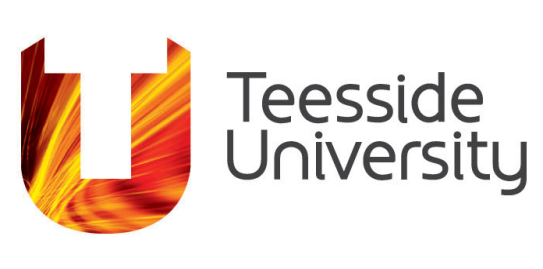B – ANNEX 10 STUDENT LEARNING & EXPERIENCE COMMITTEE
17 ANNEX II QUOTA FREE REGIME FOR2 ANNEX 1 CANCELLED PLANTING PROPOSALS AND
2 F ANNEXURE IV INANCIAL BID
3 ANNEX 2 ITUD REGIONAL DEVELOPMENT FORUMS
5 ANNEX C THE SECRETARIAT FOR POLITICAL
9 7D129 (ANNEX 3)E RADIOCOMMUNICATION STUDY GROUPS
B – Annex 10
Student Learning & Experience Committee
|
Guidance on Naming Awards, Naming Conventions for Award Titles, and on Using Alternative Award Titles for Similar Courses of Study
|
|
Document Owner: Academic Registry Version number: 4.0 Effective date: November 2020 (Academic Year 2020-21) Date of next review: July 2021
This document is part of the University Quality Framework, which governs the University’s academic provision.
|
Guidance on Naming Awards, Naming Conventions for Award Titles, and on using Alternative Award Titles for Similar Courses of Study
Naming Awards: General Principles
When deciding on award titles, a number of related criteria should be taken into account, including:
The title should be justifiable in terms of the course of study.
There should be a close alignment between the overall learning outcomes of the course and the award title.
The overall learning outcomes of the course should be compatible with the totality of module learning outcomes.
The concepts referred to in the title should have currency and/or be recognised within relevant academic disciplines and/or employment sectors.
The title should be attractive and distinctive within specific, defined, markets.
The title should be simple and clarify the subject matter of a course to applicants.
There may be administrative/funding/international (UK Home Office Visas & Immigration (UKVI)) criteria to consider, e.g. relation to HECoS codes and HEFCE price groups
Naming Conventions for Award Titles
Brackets ( ) should be used in award titles rather than colons, forward slashes, or quotes, e.g.:
Correct Convention: BSc (Hons) Advanced Engineering (Electronics)
Incorrect Convention: BSc (Hons) Advanced Engineering/Electronics
or
BSc (Hons) Advanced Engineering: Electronics
‘and’ should be used in award titles rather than &, +, or other shortened versions, e.g.:
Correct Convention: FdA Leadership and Management
Incorrect Convention: FdA Leadership & Management
or
FdA Leadership + Management
Additionally ‘in’ should not be used in titles between the award designation and the actual title, e.g.:
Correct Convention: BSc (Hons) Nursing Studies
Incorrect Convention: BSc (Hons) in Nursing Studies
The only exception to the above is if a Professional, Statutory & Regulatory Body (PSRB) specifically requires a title to be presented in a certain way, e.g. MSc Nursing in the Home/District Nursing.
Alternative Award Titles for Similar Courses of Study
It should always be possible to articulate clearly why one award title is different from another when the content of the awards is very similar or even identical. One of the legitimate reasons might be to improve the marketability of the award in specific markets. Conversely, it would not be possible for the same award title to apply to two different course structures.
The above criteria are based on academic judgement and should outweigh any mechanistic considerations. However, as a guide, 60 credits would normally be a reasonable amount of differentiation on a 360 credit undergraduate course, with pro rata differentiation in other awards of 60 credits or more. Approval Panels will need to exercise discretion in the case of awards of less than 60 credits.
All award titles (including named intermediate/fall-back awards) should have their own Course Specification. There should be an additional Course Specification for an alternative award title, even when the modular course is the same.
The alternative award title/course combination should be considered by the relevant modification process as identified within the Quality Framework (C-CMM Annex 1).
Schools should consider issues such as suitability of existing External Examiners for the alternative award. They should also review the titles and content of the modules that make up the course of study. It may, in practice, be found desirable to re-name certain key modules to better reflect the new award title and make necessary amendments to the learning outcomes.
It is expected that students will normally apply for, enrol on and graduate with a specific award title. Any transfer should have a sound rationale and be undertaken in line with the University’s Policy on Internal Transfers. Whilst there is no desire to restrict student choice, students who express a wish to transfer between the different award titles on the same course should be given appropriate counselling and advised that this may be likely to be subject to relevant constraints. The cut-off date for transfers should be the end of the final teaching year, i.e. well before the final Award Board.
ANNEX B2 PRODUCT ENVIRONMENTAL ATTRIBUTES COMPUTERS AND
ANNEX NO 1 TITLE NAME AND SURNAME OF
COMUNICAT DE PREMSA ANNEX DESCRIPCIÓ DELS
Tags: annex 10, (c-cmm annex, student, experience, annex, committee, learning
- REFERENCES FOR HANDOFF TO THE FUTURE MAPPING RELIABILITY TRAINING
- AYUNTAMIENTO DE ALCOBENDAS PETICIÓN PREVIA PARA LA AUTORIZACIÓN DE
- PUBLICATIONS BOOKS (AUTHOR) 1 BEYOND THE LANGUAGE
- DECRETO 600900 REGLAMENTO DE LA LEY PROVINCIAL 8880 EN
- PŘÍDAVNÁ ZAŘÍZENÍ POČÍTAČE 1)DRUHY PŘÍDAVNÝCH ZAŘÍZENÍ A JEJICH KRÁTKÁ
- DEPARTAMENTO ADMINISTRATIVO DE GESTIÓN DEL MEDIO AMBIENTE DAGMA FORMATO
- KULT UND KULTUR DAS WÖRTERNEST „KULT KULTUR KULTUS“ IN
- DIPARTIMENTO DI PREVENZIONE DIREZIONE VIA SIRACUSA N 45 –
- WWWRINCONDELVAGOCOM UNIVERSIDAD SANTA MARIA FACULTAD DE CIENNCIAS ADMINITRATIVAS Y
- 8 MARZO DÍA INTERNACIONAL DE LAS MUJERES “EL TIEMPO
- 8 SINDROME DE ASPERGER POR TONY ATTWOOD CAPITULO
- MIEJSCE NA PIECZĘĆ LGD KARTA OCENY PROJEKTU WG LOKALNYCH
- LOS MEDANOS CURRICULUM COMMITTEE MINUTES FROM FEBRUARY 3 2010
- HERIZ PASEALEKUA 82 20008 DONOSTIA 943311474
- 8 DICTAMEN SUSCRITO POR LA COMISIÓN DE HACIENDA Y
- 8 NA OSNOVU ČLANA 64A STAV 26 ZAKONA O
- MICHIGAN DEPARTMENT OF NATURAL RESOURCES 200730 STATUS OF THE
- BOARD NEEDS MATRIX INSTRUCTIONS FOR USING THIS TEMPLATE
- WYMAGANIA EDUKACYJNE Z MATEMATYKI KLASA II I POTĘGI
- 8 RESERVE MONEY COMPONENTS AND SOURCES (RS CRORE)
- COUNCIL OF THE EUROPEAN UNION BRUSSELS 9 NOVEMBER 2005
- CONSEJERÍA DE EDUCACIÓN Y CULTURA DIRECCIÓN GENERAL DE EVALUACIÓN
- B21 WRITTEN MEDIATION TASK DON’TS 1 DON’T USE BULLET
- GLENN & AUDREY DAFOE 1973 GLEN HAVEN CHAROLAIS INGLESIDE
- 2017 2018 EĞİTİMÖĞRETİM YILI ………………………… MESLEKİ VE TEKNİK
- ANNEXURE – V SCOPE OF WORK ELECTRICAL WORKS PAGE
- DIFERENTES CONCEPTOS DE ADMINISTRACIÓN DE LAS DEFINICIONES DADAS POR
- EL NIÑO EN CRECIMIENTO Y DESARROLLO SEMINARIO INTEGRADOR
- ORDINANCE NO 182 AN ORDINANCE ADDING CHAPTER PD
- CURRICULUM VITAE DR ANTON ÉP NASTURAS ANEMONA MÉDECINE PHYSIQUE
 РЕПУБЛИКА СРБИЈА МИНИСТАРСТВО ОДБРАНЕ СЕКТОР ЗА МАТЕРИЈАЛНЕ РЕСУРСЕ УПРАВА
РЕПУБЛИКА СРБИЈА МИНИСТАРСТВО ОДБРАНЕ СЕКТОР ЗА МАТЕРИЈАЛНЕ РЕСУРСЕ УПРАВАHÉCTOR RONCALLO LEGISLACIÓN EDUCATIVA DE RÍO NEGRO PLANTA FUNCIONAL
(NOTA COLOCADA EN LA PUERTA DEL JUZGADO DE LO
 Valle Inclán Nota el Contenido de Este Texto Está
Valle Inclán Nota el Contenido de Este Texto Está LA BELLEZA DE LA BIOCLIMATICA 1 INTRODUCCION SE HA
LA BELLEZA DE LA BIOCLIMATICA 1 INTRODUCCION SE HA SUBSKILL 9 WORD PROBLEMS II READ EACH QUESTION
SUBSKILL 9 WORD PROBLEMS II READ EACH QUESTIONESPECIALIZACIÓN EN DERECHO ADMINISTRATIVO Y GESTIÓN PÚBLICA FUNDAMENTOS DE
 C13_C14-Form_Reserva_Hotel_Salobrea_2016
C13_C14-Form_Reserva_Hotel_Salobrea_2016MINISTARSTVO ZA DEMOGRAFIJU OBITELJ MLADE I SOCIJALNU POLITIKU 1665
 8A REGUŁA DE L’HOSPITALA ROZWAŻMY ILORAZ F(X)G(X) W SĄSIEDZTWIE
8A REGUŁA DE L’HOSPITALA ROZWAŻMY ILORAZ F(X)G(X) W SĄSIEDZTWIEBAR2 OFFSET 0X00 READWRITE MEZZANINE REGISTER BAR2 OFFSET 0X04
6 PATVIRTINTA JONAVOS RAJONO SAVIVALDYBĖS TARYBOS 2021 M GEGUŽĖS
 ALERTA BIBLIOGRÁFICA – AGOSTO 2004 DERECHO PARA VER
ALERTA BIBLIOGRÁFICA – AGOSTO 2004 DERECHO PARA VER11 DON CARLOS GONZÁLEZGARCÉS SANTISO TENIENTE DE
TEMA V NEOCLASICISMO Y ROMANTICISMO (PP 219283) EL TEATRO
 ANKIETA W ZAKRESIE PROWADZENIA SCHEMATU PŁATNICZEGO1 PROSZĘ O PRZEDSTAWIENIE
ANKIETA W ZAKRESIE PROWADZENIA SCHEMATU PŁATNICZEGO1 PROSZĘ O PRZEDSTAWIENIEEXEMPLE DE NOTATION GENRE PROJET DE RÉHABILITATION DES PUITS
 T ÊN ĐƠN VỊ NGÀY THÁNG NĂM BÁO CÁO
T ÊN ĐƠN VỊ NGÀY THÁNG NĂM BÁO CÁO ORBIT SAM RESET SELFSERVICE USER TRAINING GUIDE VERSION 11
ORBIT SAM RESET SELFSERVICE USER TRAINING GUIDE VERSION 11 AUSTRALIE WTTPRS178 PAGE 122 IVPOLITIQUE COMMERCIALE – ANALYSE PAR
AUSTRALIE WTTPRS178 PAGE 122 IVPOLITIQUE COMMERCIALE – ANALYSE PAR
